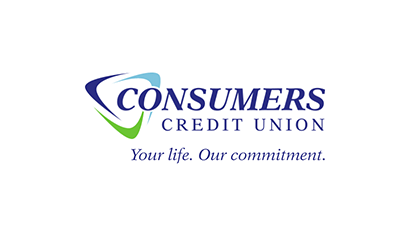Differences Between Banks and Credit Unions
Choosing between a bank and a credit union is a common decision that stumps consumers who are looking for a new place to stash their money.
By understanding the differences between banks and credit unions, and weighing other factors, you can make a better-informed choice.
What's the Difference?
Like banks, credit unions are financial institutions that offer a broad range of financial accounts and services, but credit unions operate under a different game plan.
Banks aim to generate profits and boost shareholder value for investors, while credit unions are not-for-profit.
Banks have customers, and credit unions have members, who have an ownership stake in their credit unions.
Any profit generated by a credit union is returned to its members in various ways such as lower fees, lower borrowing rates or higher deposits rates for savings accounts and certificates of deposit (CDs).
Additionally, becoming a customer of a bank and a member of a credit union can differ in terms of qualifications.
A bank may reject an applicant does not live within proximity of a bank or carries a bad credit profile.
Credit unions may be less stringent, but they may require particular affiliation to become a member (e.g., an employee of a certain type of company or agency, a member of an association, former or active member of the military and etc.).
Similar to banks, deposits at credit unions are protected up to a certain amount.
At a bank, deposits are insured up to $250,000 by the FDIC per customer per account ownership type (e.g., single, joint, business, trust and etc.).
At a credit union, deposits are also insured up to $250,000 per account ownership type, but by the National Credit Union Administration.
Bank or Credit Union?
Picking between a bank or credit union will eventually come down to cost and quality of service.
In addition to reviewing monthly fees for accounts, it is also important that you look at fee schedules to compare the costs of related transactions and services, such as overdraft, card replacement, and ATM access fees.
Again, because of the structure of credit unions, they tend to have lower costs.
Other than fees, you should also consider the number of locations of nearby branches and ATMs, hours for live customer service and online/mobile banking features. Banks tend to do better than credit unions on this front.
Ultimately, your personal preferences and financial habits will drive your decision in choosing between a bank versus a credit union. (It may be a good idea to try both to determine the right place for your money.)
What Are Credit Union Drawbacks?
Big banks are able to offer their customers convenience through mobile banking and technological advances.
Since credit unions are usually local and small, it can be more difficult to withdraw money without physically visiting a branch.
If you'd like to withdraw money while traveling, doing so can be costly, and even using local ATMs incurs fees that quickly add up.
However, as one reader points out from personal experience, there are many small, local credit unions that do offer mobile banking as a standard feature, so in order to select a technologically savvy credit union to switch to, ask directly to determine what features credit unions near you do and don't offer.
That aside, it's widely known that most credit unions charge lower fees than many popular banks, but less widely known is that credit unions can also charge other types of fees that banks normally do not, so keep this in mind while searching.
Eligibility
Credit unions emphasize inclusion and community, and since their customers are considered to be members, it isn't difficult to deduce that you need to have all the boxes checked in order to be eligible to participate in a credit union near you.
However, finding one you qualify for isn't difficult.
Most people join credit unions through their employer, but other categories of membership include church, school, one's community, the military, and employee group.
To find a credit union, you can call your state league or talk to your employer, and encourage your family members to turn to their employers and affiliations as well.
Twenty-five percent of credit unions are
One of the biggest myths about credit unions is that they're difficult to join.
However, finding an eligible credit union isn't hard, and with new technology and businesses, such as CreditUnionLookup.com, intended to help consumers learn more about them, you can be on your way to transferring your finances and joining a member-minded financial institution in a short matter of time.
You might also like to read:
Is a Credit Union Better than a Traditional Bank?
Banks vs. Credit Unions: Where The Best Place to Get a Mortgage?





anagdul
Wednesday, 29 Jan 2023 10:40 AM
disqus_cC3dQ6I3QW
Wednesday, 29 Jan 2023 12:10 AM
anagdul
Saturday, 14 Feb 2023 9:55 PM